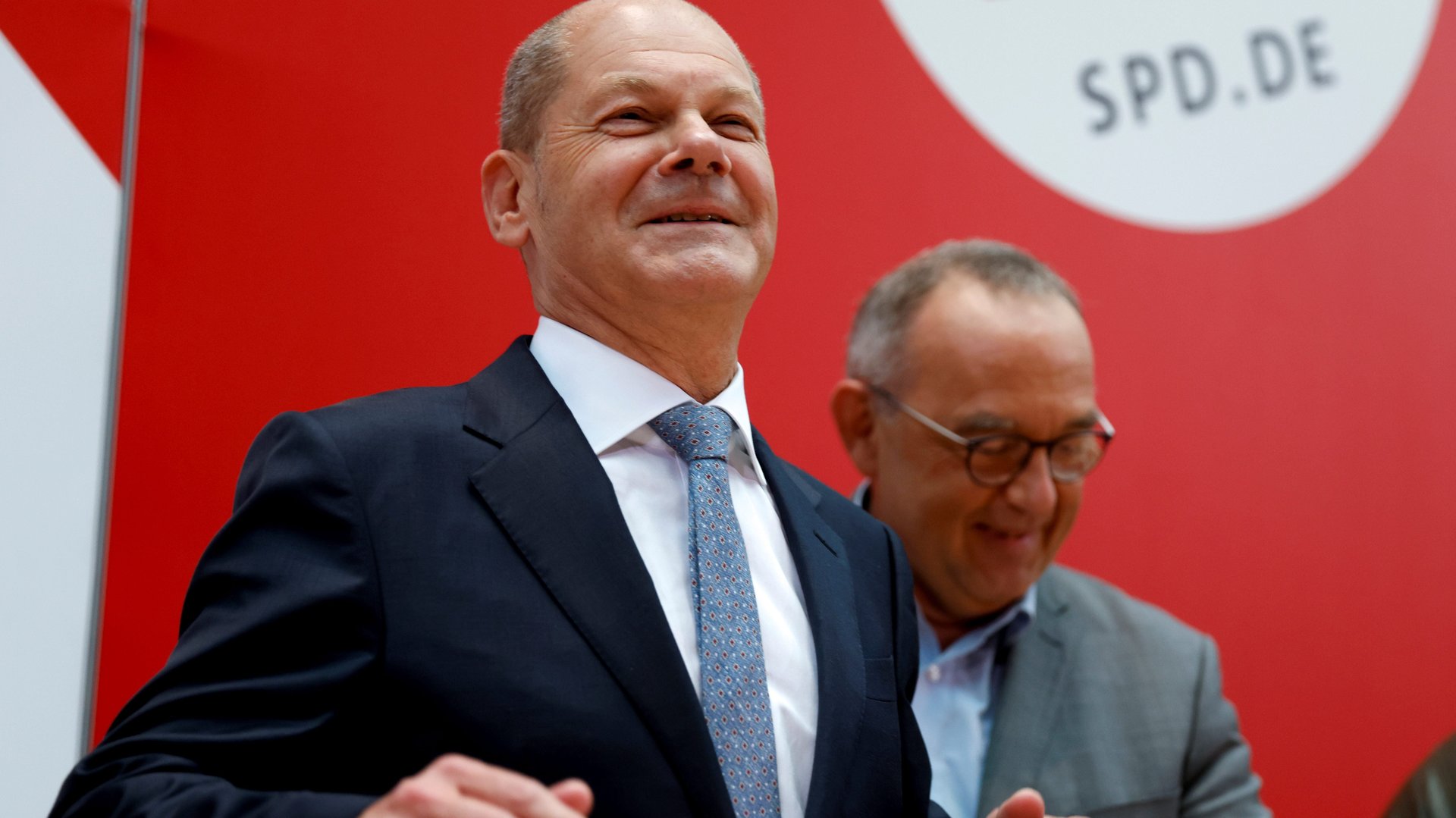Who is Olaf Scholz, the potential successor for German chancellor Angela Merkel?
Olaf Scholz looks likely to succeed German chancellor Angela Merkel following his party’s victory in the country’s federal elections on Sunday (Sept. 26).


Olaf Scholz looks likely to succeed German chancellor Angela Merkel following his party’s victory in the country’s federal elections on Sunday (Sept. 26).
Scholz’s Social Democrats (SPD) earned 25.7% of the vote while Merkel’s center-right party, the Christian Democrats (CDU) came away with 24.1%, the worst showing since its formation in 1945.
It will probably take months before any candidate is officially named chancellor. Scholz now has to form a coalition with at least one other party in parliament, and his main opponent, the CDU’s Armin Laschet, has vowed to do the same before Christmas. But it’s rare that a candidate from the losing party is able to claim the title of chancellor, and Scholz is still seen as the likeliest replacement for Merkel.
The “Scholzomat” was once an unlikely successor
Scholz, who most recently served as Merkel’s finance minister and deputy, was known for keeping a low profile prior to running for chancellor. Germans jokingly refer to him as “der Scholzomat” because he tends to speak in a robotic tone.
This low profile has helped Scholz ride out numerous scandals. In April he denied any responsibility for the Wirecard scandal despite being the ultimate head of the country’s financial regulatory authority while executives of the German technology company were allegedly orchestrating a fraud amounting to billions of dollars.
Scholz trailed in the polls behind both the Christian Democrats and the Greens up until the summer, when missteps by both parties’ candidates gave the vice chancellor a boost.
Even though he represents the rival party to the CDU, Scholz touted his proximity to Merkel as an advantage when campaigning, going so far as to emulate her signature rhombus hand gesture for a photo shoot.
What Scholz’s success could mean for the German economy
It’s likely that Scholz will form a coalition with the Green party and the Free Democratic Party, or FDP, in parliament. This so-called “traffic light” coalition would be the first three-party alliance in the country’s history, and already has “some conflict lines written in the sand,” according to Markus Ziener, a fellow with the German Marshall Fund.
Scholz has said he wants to raise the tax rate on the country’s top income bracket to 45% from 42%, while the Green party has proposed raising it to 48%. Ziener says these plans are unlikely to sit well with the pro-business FDP, meaning the parties may have to “compromise a lot” during coalition negotiations.
Nevertheless, he says he expects there to be “a more flexible line when it comes to spending money” with this new coalition, which is likely to focus on issues such as modernizing the country’s digital infrastructure, investing more heavily in the green economy, and bridging the widening gap between the rich and the poor.
In Berlin, a majority of voters said they wanted the government to expropriate property from the country’s largest rental companies and socialize this housing in order to combat rising rents. While the initiative is non-binding and the city’s new mayor, Franziska Giffey, has spoken out against it, Ziener says the popularity of such a proposal gives a taste of where the country might be headed with more left-leaning parties at the helm.
As for the rest of the continent, Ziener says he expects the EU to be high on Scholz’s agenda as the bloc works to recover from the economic fallout of the coronavirus pandemic. Whether he can fill the shoes of the so-called queen of Europe is a more difficult question. “I wouldn’t underestimate him,” Ziener said.